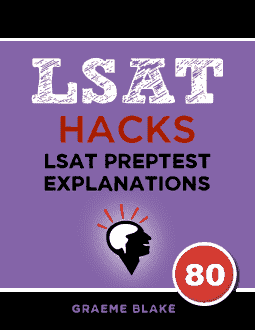QUESTION TEXT: Principle: A government should reduce taxes on imports…
QUESTION TYPE: Principle
CONCLUSION: The government shouldn’t lower taxes on imported textiles.
REASONING:
- Financial benefit to many consumers ➞ lower taxes on imports
- Exception: Domestic industry significantly harmed ➞ don’t lower taxes on imports
ANALYSIS: This is an interesting logical structure. Usually, LSAT reasoning doesn’t deal in exceptions. But here, we have a conditional statement, which is normally true 100% of the time. But, the author tells us there is one exception.
Since the conclusion is “don’t lower taxes” that must mean the exception applies. So, the answer should say “Some domestic industry would be significantly harmed if textile import taxes were lowered”.
Consumer benefit is irrelevant, and can be skipped when reading answers. The point of an exception is that you ignore the general rule.
___________
- Benefit to consumers was a sufficient condition for lower textile taxes. It’s not necessary: there could be another reason we should lower taxes, even if consumers don’t benefit.
- Benefit to an existing industry doesn’t matter. We only need to make sure that none are significantly harmed. Lack of benefit doesn’t mean harm.
- This competition is in the export markets. I.e. in other countries. Changing import tariffs has no effect on export markets – imports only refer to goods coming into the domestic economy.
- So? It doesn’t matter if other measures are better. There is a benefit to tariff reductions in this case, and so there’s no obvious reason not to lower taxes. Only significant harm would be a reason to keep tariffs up.
- CORRECT. This exactly matches the one exception to the rule. Since there is significant harm to a domestic industry, we shouldn’t lower import tariffs.
Recap: The question begins with “Principle: A government should reduce taxes on”. It is a Principle question. To practice more Principle questions, have a look at the LSAT Questions by Type page.


Leave a Reply